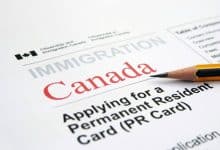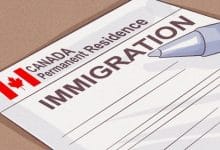Canada’s CRS Score
FAQs On Comprehensive Ranking System
Canada’s CRS Score sounds confusing to most intending immigrants. If you have considered immigrating to Canada, you’ve undoubtedly heard or read about the Comprehensive Ranking System (CRS) and Canada Express Entry CRS cut-off scores. The immigration application process may be complicated, and understanding how to optimize your chances is essential if you want to be successful at your first attempt.
Canada’s CRS Score: FAQs
We have answered the top eight commonly asked questions regarding the Comprehensive Ranking System to demonstrate how simple it may be to optimize your CRS score for the next Express Entry draw.
Question 1: What is Canada’s Comprehensive Ranking System?
Answer: The Comprehensive Ranking System is used in Canada to rates your Express Entry profile. It aids Immigration, Refugees, Citizenship Canada (IRCC) in determining if you are eligible to seek for permanent residency as a highly to semi-skilled worker. It also assists the IRCC in selecting particular individuals who will be able to transition to a new life and live happily in Canada.
Question 2: How does the Comprehensive Ranking System work?
Answer: Since 2015, Canada’s Express Entry system has become the number one go-to immigration solution. It is responsible for three immigration programs: the Federal Skilled Worker Program (FSWP), the Federal Skilled Trade Program (FSTP), and the Canadian Experience Class (CEC). When you create an Express Entry Profile, you will be ranked using the Comprehensive Ranking System (CRS). Your score will then be totaled, and you will be assigned a CRS score out of a possible 1,200.
Your profile will now be included into a draw pool with the profiles of other candidates. The IRCC will announce the cut-off score based on the average of all CRS scores in that particular draw. This shows who will and will not get an Invitation to Apply for Permanent Residency. If your CRS score is equal to or greater than the CRS cut-off level, the IRCC will issue you an invitation to apply for Canadian Permanent Residency (PR).
Question 3: Is there a CRS Score calculator?
Answer: Yes. It will provide you with an estimate. The IRCC offers a CRS tool that will assist you in determining whether you are eligible for Canada’s Express Entry System. It is better to have an RCIC or immigration lawyer do an evaluation for an accurate CRS score.
Question 4: What is the minimum CRS Score?
Answer: Because the CRS cut-off score varies from draw to draw, there is no defined minimum CRS score. There are averages to strive for for specific program draws, but it’s best to keep working on raising your CRS score wherever you can while your profile is still in the draw.
Question 5: Can I improve my CRS score?
Answer: Yes you can. There are several options, such as strengthening your language exam scores, obtaining additional job experience, applying with a spouse, and so on.
Ways on Improving Canada’s CRS Score
The first and most straightforward approach to increase your CRS score is to retake your language exam. You may accomplish this in two ways: retake your first test or learn a second language. You may gain up to 22 additional points by retaking your test.
Gaining additional job experience is the next technique to earn more CRS points. Although job experience is not required to be qualified for Canada’s Express Entry system, it can help you acquire the coveted ITA for PR in Canada. It is suggested that you have at least three to five years of experience in your field.
Another option is to apply with your spouse or partner, which allows you to claim more points. This is because Canada wants to keep families together and so makes it simpler for couples or families to come to Canada together by providing them with the opportunity to gain extra points.
Question 6: What is a good CRS score?
Answer: Based on previous draws, 383 is a good CRS score to aim for as a Canadian Experience Class (CEC) candidate, and 739 is a good CRS number to aim for as a Provincial Nominee Program applicant. At the present, the Federal Skilled Worker and Trades Programs are still taking applications. Although individuals with Provincial Nominations and Canadian work experience are given priority.
Question 7: What is the best way to boost my CRS score?
Answer: Get a Provincial Nomination. It has a CRS point value of 600. Obtaining Provincial Nomination, is a proven approach to improve your CRS score. To get a Provincial Nomination, you must either express interest directly to your selected province or territory or create an Express Entry profile. You are almost certain to receive an ITA, because your Provincial Nomination will earn you 600 more CRS points.
Question 8: Is the CRS scoring couples differently than solo applicants?
Answer: Yes. Couples may receive less basic CRS points than a solo candidate, but they may receive more points from their spouse. For example, if you are 30 years old, you can claim 95 CRS points if you apply with your husband or partner. But, if you apply on your own, you would receive 105 CRS points. However, if you apply as a pair, you will be able to receive extra points based on your spouse or partner’s degree, language abilities, and Canadian experience. In fact, you might earn up to 40 more points! So, while applying with a loved one may cost you 10 points, it is really preferable to apply jointly since you may get four times as many points. You may want to explore easy ways to immigrate to Canada.
In order not to miss out on prompt updates from careerinfos.com, enter your email address below and hit the subscribe button beneath.
A confirmation link will be sent to your inbox or check your spam mails if its not in your inbox. Make sure you click the link to confirm your subscription in order not to miss any updates from this blog. All comments (related to the post above) should be dropped via the comment section below.








